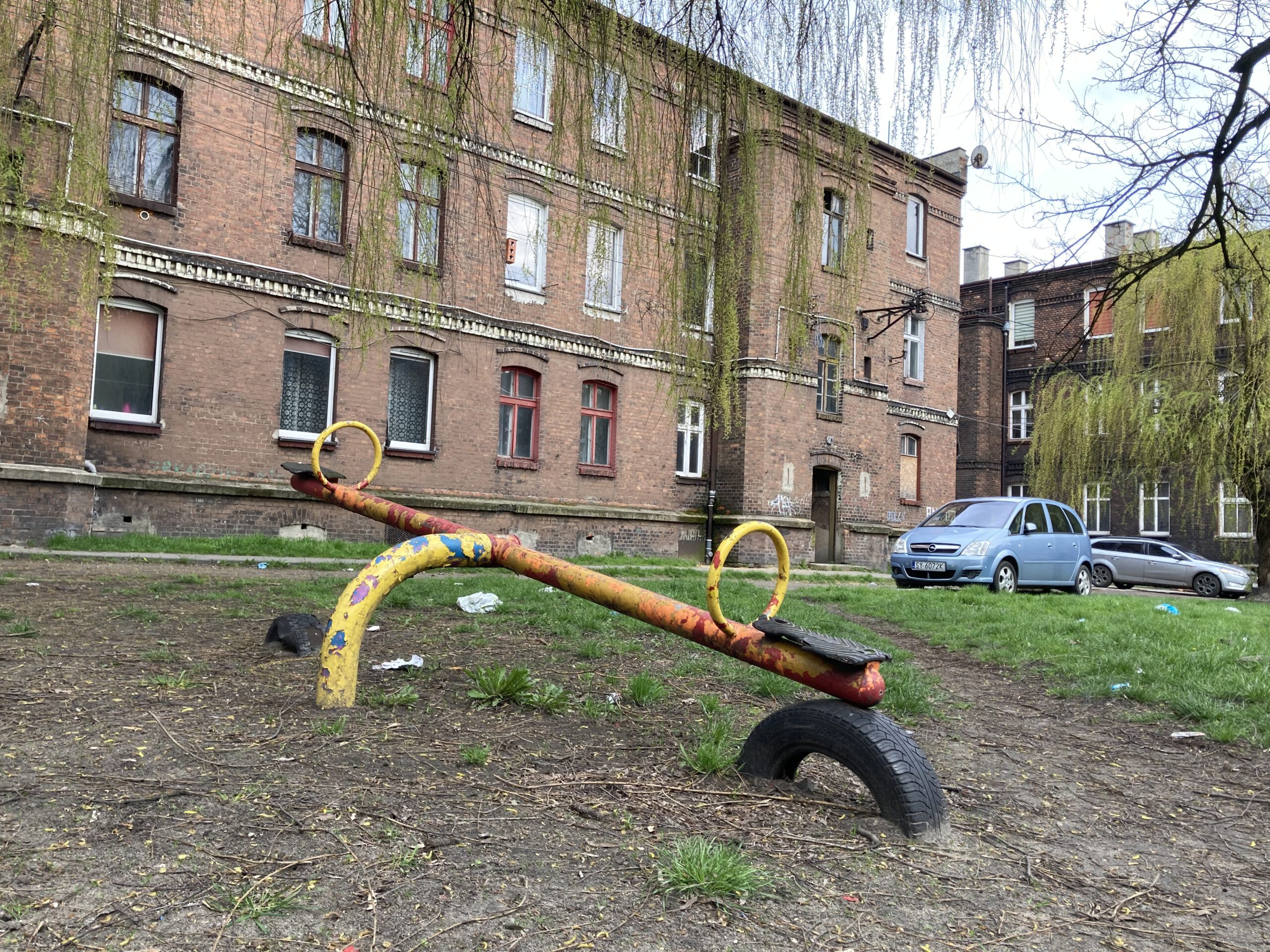Communion of Protestant Churches in Europe CPCE
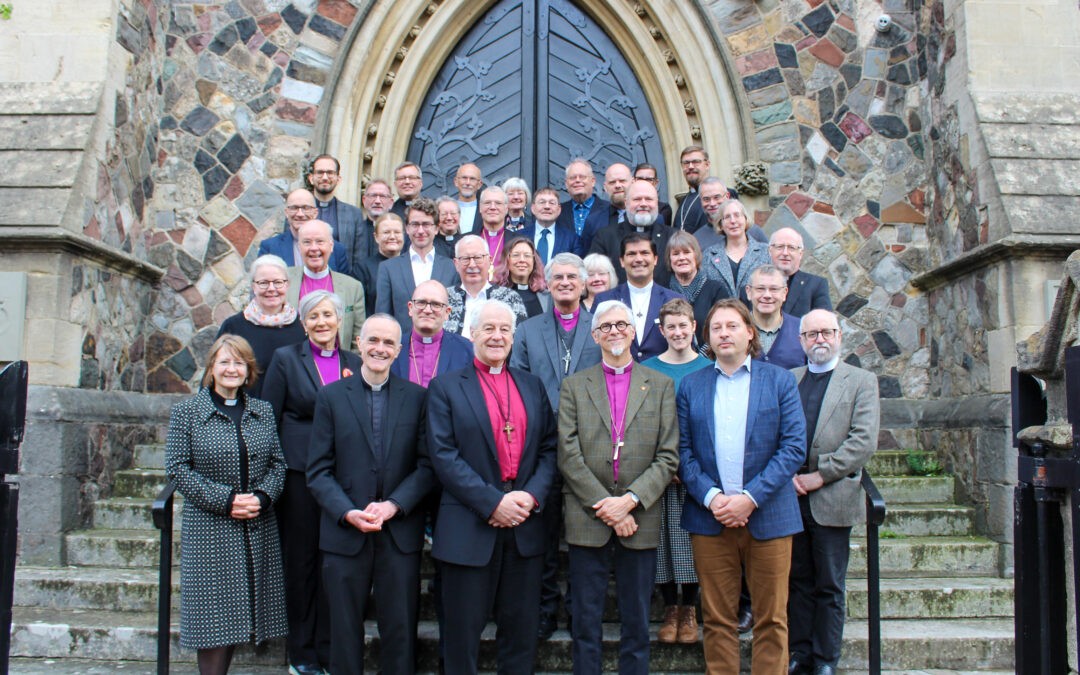
Porvoo Communion: Theological conference at anniversary of Council of Nicaea / Porvoo Gemeinschaft: Theologische Konferenz anlässlich Nizäa-Jubiläums
From 7–9 October 2025, the Porvoo Communion – a communion of Anglican and Lutheran churches in Europe committed to shared mission, mutual recognition of ministry, and theological dialogue – held its triennial theological conference in Cardiff on the occasion of the...
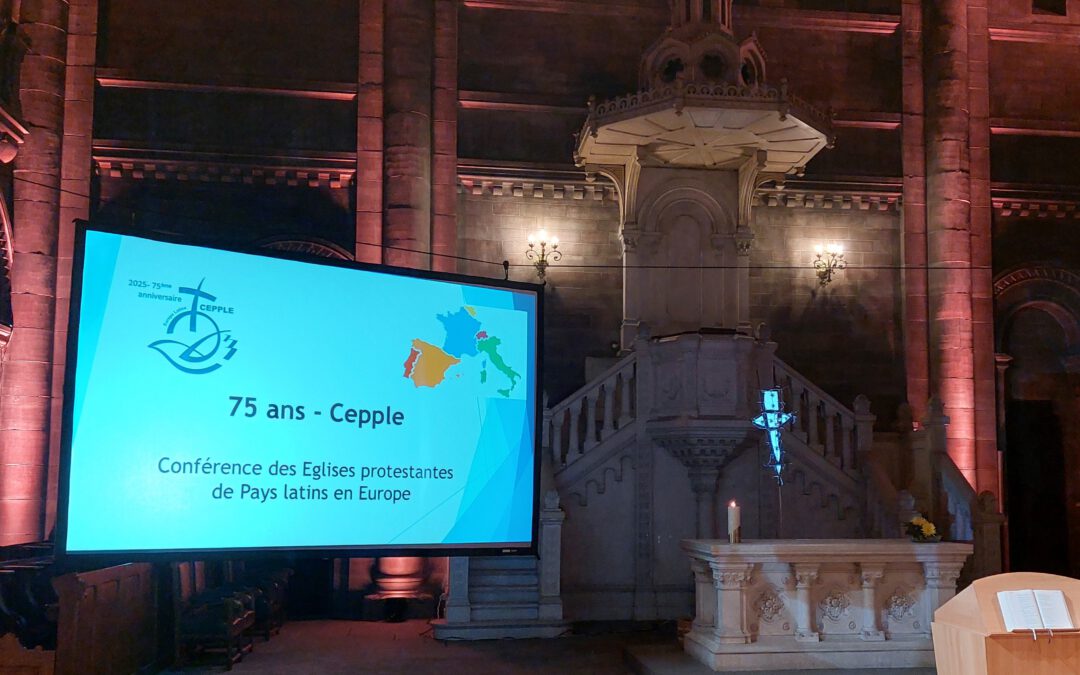
75 Jahr – Jubiläum der CEPPLE / 75 ans de la CEPPLE / 75 years of CEPPLE
Am 24. November 2025 wurde in Straßburg das 75. Jubiläum der Konferenz der evangelischen Kirchen in den romanisch-sprachigen Ländern Europas (CEPPLE), einer Regionalgruppe der GEKE gefeiert. Neben einem feierlichen Gottesdienst wurden Aspekte des Themas „Kirche und...
Statement of the CPCE-Council: We owe a lot to the Nicaean Council / Erklärung des GEKE-Rates: Wir verdanken dem Konzil von Nicäa sehr viel
Exactly 1,700 years ago, the Council of Nicaea succeeded in formulating a confession of faith that states our belief in one God – the Father, the Son and the Holy Spirit – as an expression of the biblical witness. On the occasion of this anniversary, the Communion of...
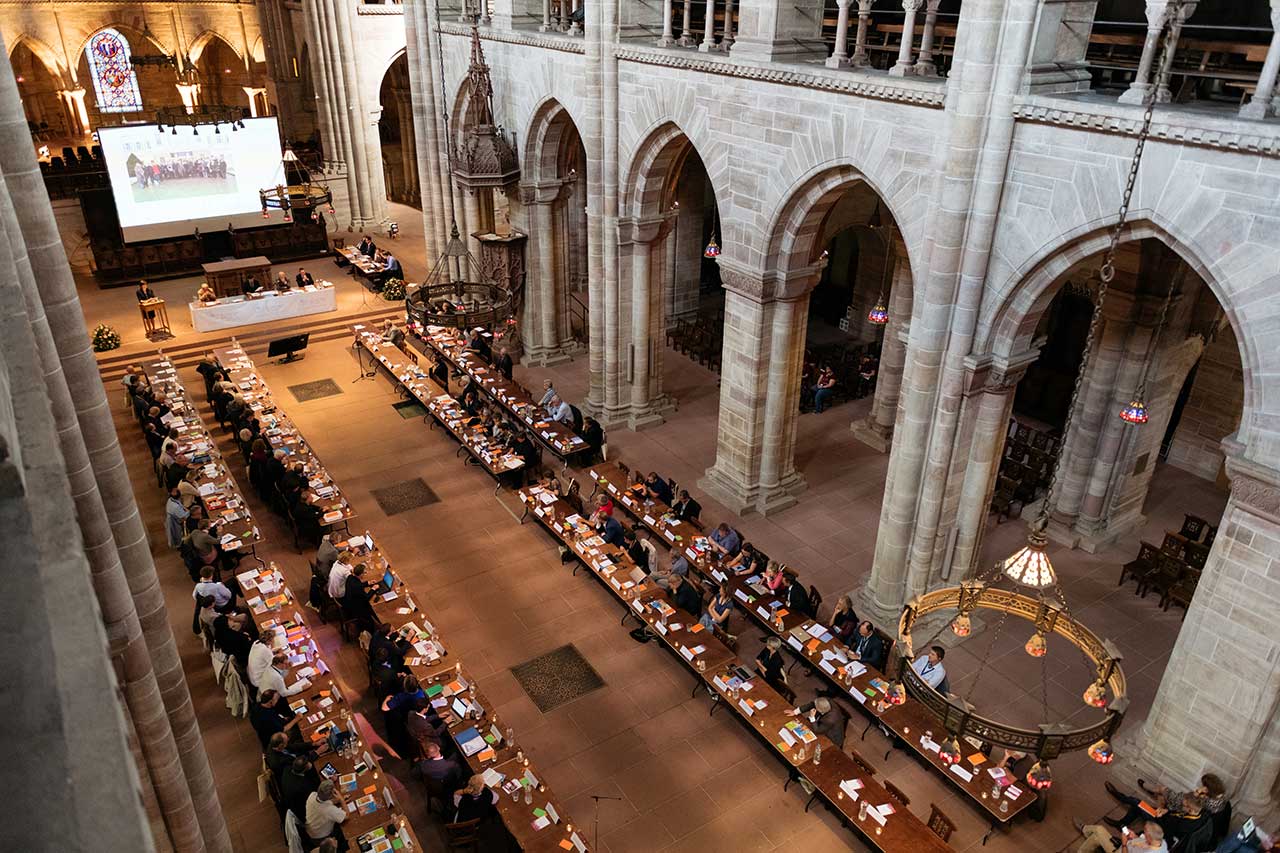
About us
The CPCE is a communion of protestant churches. 96 lutheran, methodist, reformed and united churches from over thirty countries in Europe and South America belong to it. With that the CPCE represents altogether around 50 million Protestants.
The CPCE exists thanks to the Leuenberg Agreement of 1973. It concluded: churches are allowed to be different because they appeal to the Gospel as their common basis. That sounds simple, but has far-reaching consequences: since then a lutheran minister can preach from a reformed pulpit or a French minister lead a congregation in Germany.

About us
The CPCE is the umbrella organisation of the protestant churches. 94 lutheran, methodist, reformed and united churches from over thirty countries in Europe and South America belong to it. With that the CPCE represents altogether around 50 million Protestants.
The CPCE exists thanks to the Leuenberg Agreement of 1973. It concluded: churches are allowed to be different because they appeal to the Gospel as their common basis. That sounds simple, but has far-reaching consequences: since then a lutheran minister can preach from a reformed pulpit or a French minister lead a congregation in Germany.
The General Assembly, which takes place every six years, is the highlight in the life of the CPCE and the new Focus issue is dedicated to it. In this Focus you will find short summaries of the completed topics “Practice and Theology of the Lord’s Supper”, “Sexuality, Gender, Marriage and Family” and “Christian Speaking of God”. Also included are the CPCE statements with publication references.
The General Assembly took place in the heart of Romania, in Sibiu. With this booklet, immerse yourself (once again) in the places, encounters and memories of the General Assembly and in the beauty of the city and let yourself be enveloped by the CPCE spirit!
Download the English version here!
____________________________________________
Die alle sechs Jahre stattfindende Vollversammlung ist der Höhepunkt im Leben der GEKE und ihr ist die neue Focus-Ausgabe gewidmet. Thematisch finden Sie in diesem Focus kurze Zusammenfassungen von den abgeschlossenen Themenschwerpunkten “Praxis und Theologie des Abendmahls”, “Sexualität, Gender, Ehe und Familie” und “Christliches Reden von Gott”. Ebenso enthalten sind die GEKE-Statements mit Publikationshinweisen.
Die Vollversammlung fand im Herzen Rumäniens, in Hermannstadt, statt. Tauchen Sie mit diesem Heft (noch einmal) in die Orte, Begegnungen und Erinnerungen der Vollversammlung und in die Schönheit der Stadt ein und lassen Sie sich vom GEKE-Spirit umfangen!
Focus 31 - Vollversammlung 2024 Focus 31 - General Assembly 2024
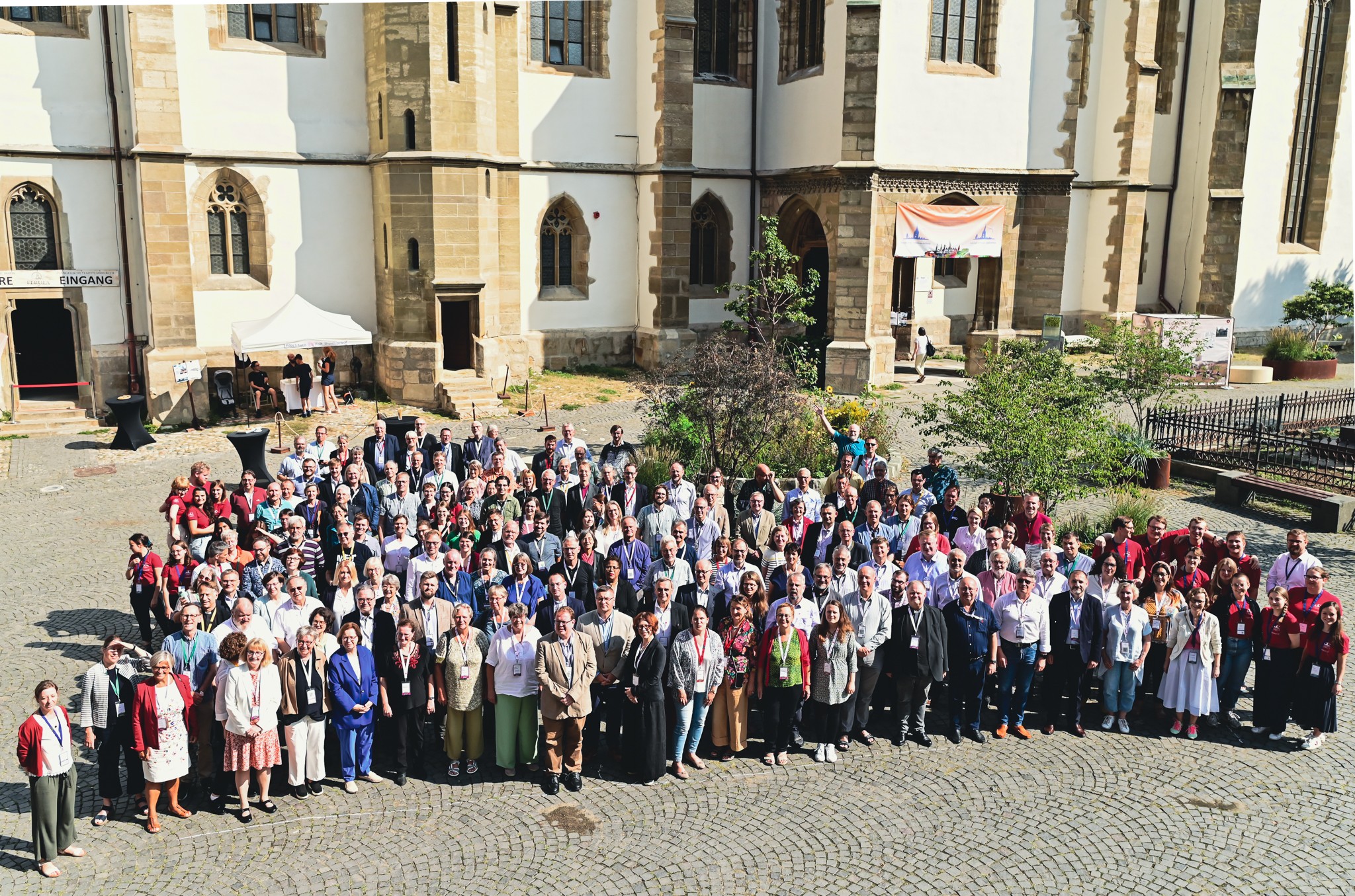
Rich Relationships – The Joint Task of the Church as Diaspora
Many Protestant churches are in the minority – in Europe and all over the world. Some churches have been in this situation for many decades, while for others it is a new challenge. Yet others see themselves moving towards life as a minority.
The CPCE study document “Theology of Diaspora” developed a concept of diaspora that understands diaspora as shaping fullness of relations in a spirit of Christian discipleship.
Now CPCE published an abridged version and further development of the study document “Theology of Diaspora” as edition no. 30 of CPCE’s magazine focus, entitled “Rich Relationships – The Joint Task of the Church as Diaspora”.
This focus booklet should appeal to anyone who likes and enjoys reflecting upon the Church and its meaning and purpose in the world with regard to its actual or progressively minority situation in Europe.
“Euro-orphans”
Numerous children are growing up without parents in eastern (and to some extent also southern) Europe, dubbed “Euro-orphans” by the international press. What happens to these children when their parents go to work abroad indefinitely?
The CPCE is working with the Gustav Adolf Foundation to support various projects run by churches for these children and their families in eight different European countries. From 17 to 19 April 2023 a network meeting of project managers took place in Katowice.
